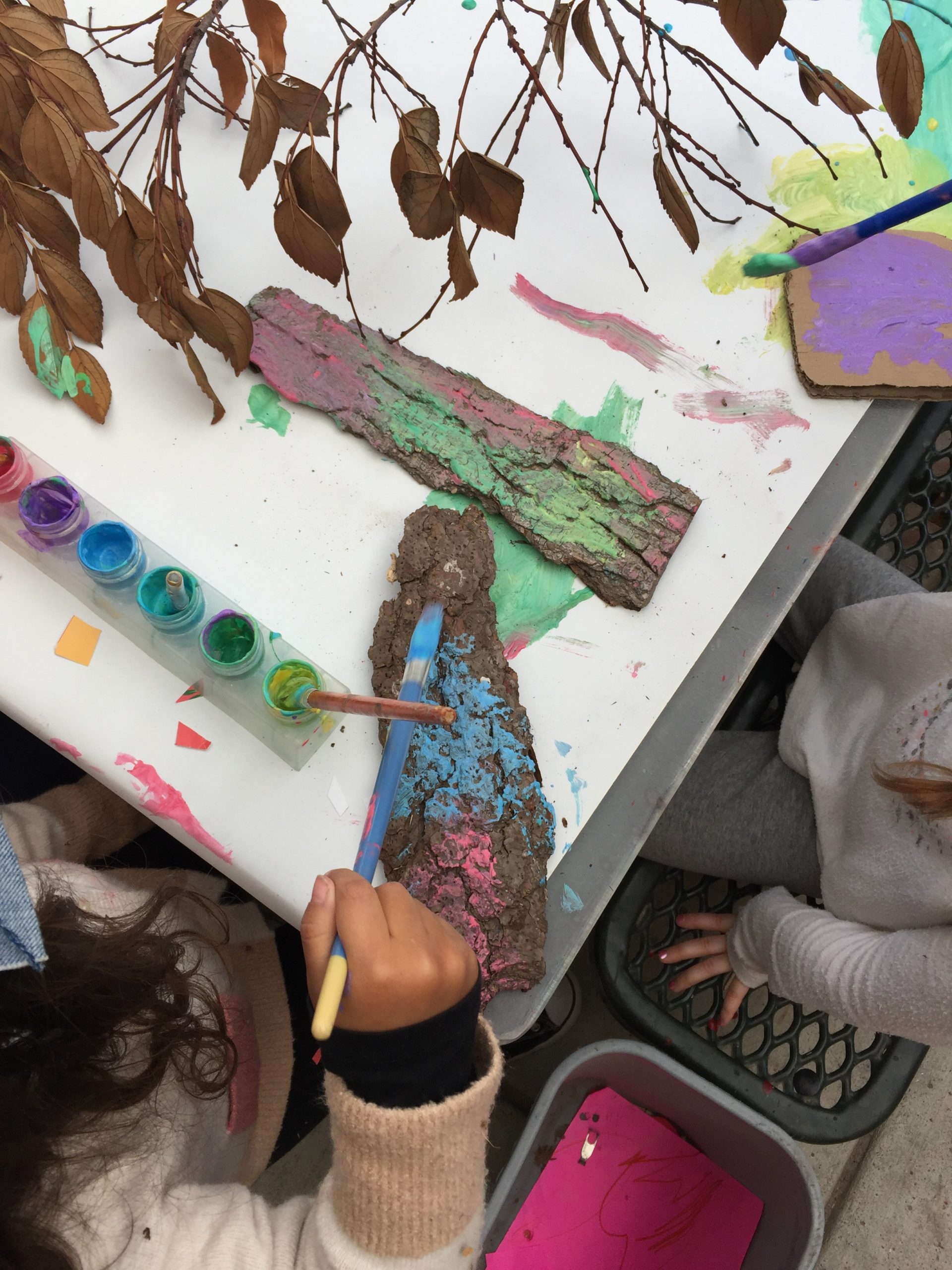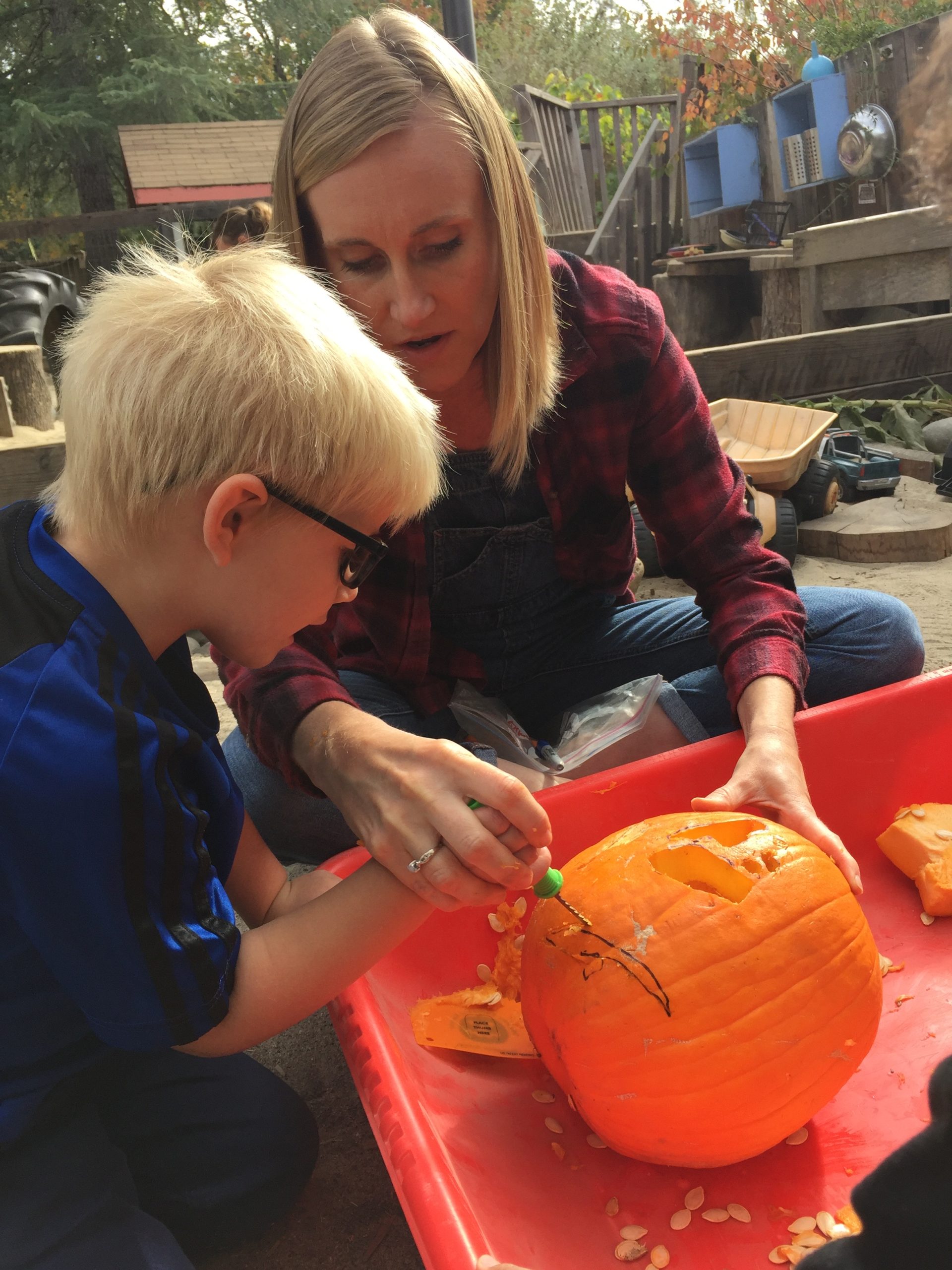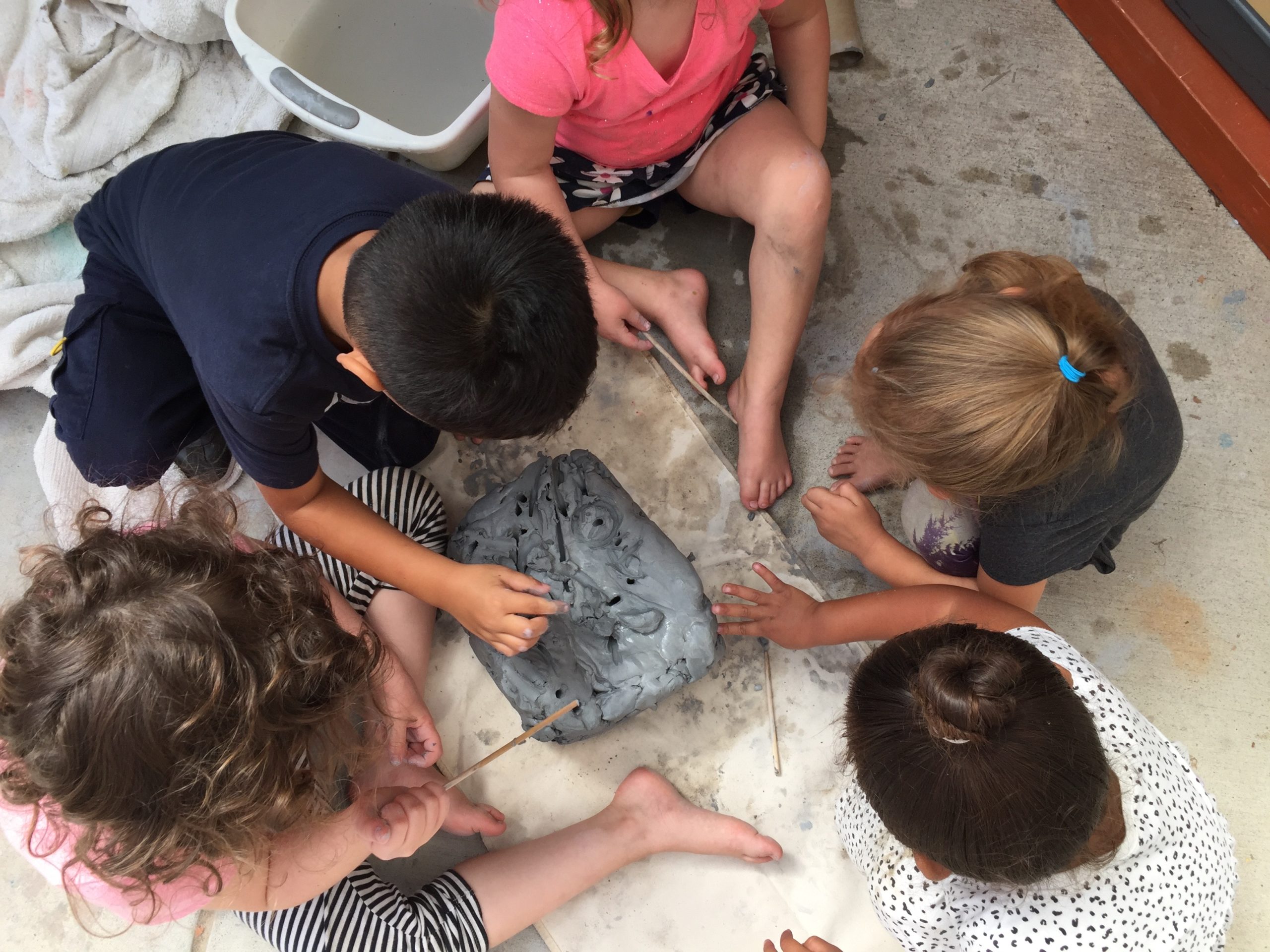The Village Acorns
A PreKindergarten Program for 4 and 5-year-olds
An Outdoor Play-Based Program
Our youngest children will be introduced to the Village Charter School Philosophy – to educate the whole child physically, emotionally, socially, and academically at the child’s developmental and age-appropriate level within an outdoor classroom designed specifically for 4 and 5-year-olds.
Why Outdoors?
For children to connect to nature, to the Earth, they must experience it firsthand.
Passage of Time
Before children can understand a calendar, they must observe seasonal change.
Early Literacy
Before children can learn to read and write, they must develop language skills and strengthen hand muscles.

Why Play-Based?
Brain Research
Play is not frivolous; it is brain building. (AAP, 2018)
Authenticity
Children are deeply engaged in learning built around their needs and interests.
Lifelong Learners
Children with positive and authentic school experiences will maintain a love for learning.
Play is Learning in Action
An excerpt from The Case of Brain Science and Guided Play: A Developing Story
“A growing body of behavioral research establishes relationships between children’s play and development in several areas, including language (Toub et al. 2016), executive functions (Tominey & McClelland 2011), mathematics and spatial skills (Fisher et al. 2013), scientific thinking (Schulz & Bonawitz 2007), and social and emotional development (Dore, Smith, & Lillard 2015). One reason that play might be such a valuable pedagogical tool is that it features the precise contexts that facilitate learning. An amalgamated research field called the science of learning has identified four key ingredients of successful learning: learning occurs best when children are mentally active (not passive), engaged (not distracted), socially interactive (with peers or adults), and building meaningful connections to their lives (Hirsh-Pasek et al. 2015).”

Teacher as a Play Guide
In a play-based program, the teacher becomes the guide. The role of the teacher is to plan curriculum around the interests and needs of the specific children; to set the environment; to scaffold play, to ask open-ended questions. to support problem solving, and to observe and document learning.
In our program, children will be encouraged and supported to build community; to build emotional literacy, to build a deeper understanding of their world, and to take healthy risks.
The American Academy of Pediatrics Promotes Play
“Focusing on cultivating executive functioning and other skills through playful learning in these early years is an alternative and innovative way of thinking about early childhood education. Instead of focusing solely on academic skills, such as reciting the alphabet, early literacy, using flash cards, engaging with computer toys, and teaching to tests (which has been overemphasized to promote improved test results), cultivating the joy of learning through play is likely to better encourage long-term academic success. Collaboration, negotiation, conflict resolution, self-advocacy, decision-making, a sense of agency, creativity, leadership, and increased physical activity are just some of the skills and benefits children gain through play.”

